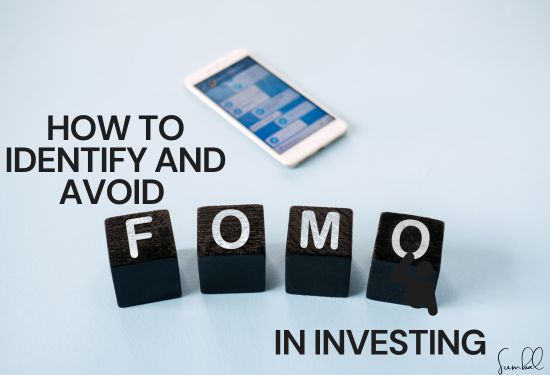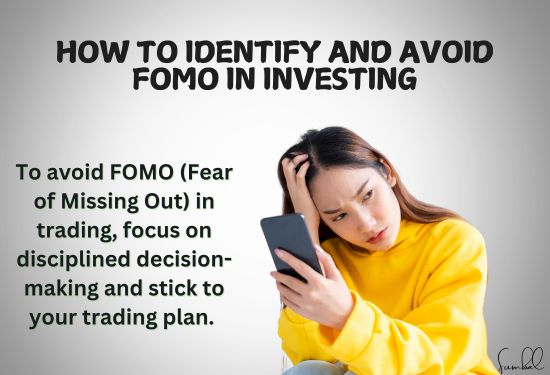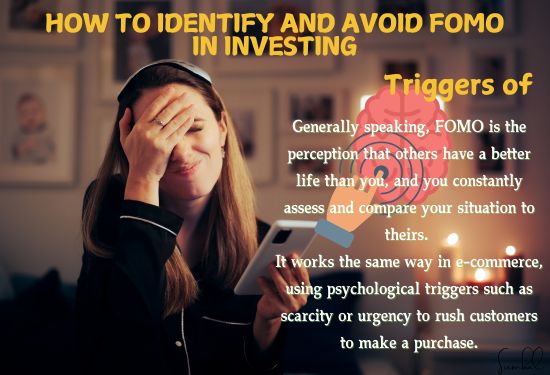In this fast-moving world, the fear of missing out (FOMO) in investments is destructive. It is because it psychologically wants to avoid regret and tends to keep pace with others. It often pushes investors towards impulsive actions, which they usually regret. FOMO and discipline are very important to successful investment strategies.

Understanding FOMO in Investing
FOMO occurs when seeing one's friends profiting from a market trend and feeling that there is an urgency to join it. Generally, this is high during boom times when stocks or cryptocurrencies are rising in value. The prevalent thought will be, "If I don't take risk now, I might lose great profits."
The judgment becomes clouded because of emotional investment, making investors run after over-the-top price assets. It causes them to set aside their financial goals and risk tolerance to pursue wealth-increased expenses. FOMO is fueled by social media, continual news cycles, and influencer-incited investment trends.
The Effects of FOMO on Investment Strategies
FOMO results in ineffective investment choices. The effects are:
- Chasing Hot Trends: FOMO investors make investments when the prices of the assets are already high and when everyone is buying into them. For example, in 2021, many investors invested in BTC and other altcoins at the market's apex and, consequentially, lost money when the market crashed.
- Ignoring Fundamentals: Such investors may even forget that factors such as a company’s earnings, price-to-earnings ratio, or prospects can be relevant when investing due to the fear of losing out. This can lead to investing in assets in the hope of a high-value increase in the end, which may turn out to be fueling an unsustainable crash.
- Overtrading: It can lead to high tradeover because investors always jump from one style to another when trying to avoid FOMO. Overtrading raises transaction expenses as well as taxes, which in turn erodes returns.
- Emotional Stress: Trading based on FOMO means you regret whenever certain stocks perform poorly or there are losses. It worsens over time and decreases confidence, hence leading to other worse decisions in the future.

How to Recognize FOMO
Identifying the warning is actually the first step in managing FOMO. Ask yourself:
- Is it right to invest because everyone else is making money?
- Have I drifted off any of the plans I had on the investment?
- Is this opportunity well-researched, or am I just following the hype?
FOMO is the driver if your answers tend towards impulsiveness or fear.
Tips to Resist FOMO
- Stick to a Plan: To reduce the risk of investment fraud, always develop a sound investment plan that corresponds with your objectives and your ability to handle the risky investment.
- Diversify Your Portfolio: Because it spreads risk and guarantees exposure to various possibilities, a diversified portfolio can lessen the desire to follow certain trends.
- Practice Patience: Investing is not a short-term activity but it is an enduring process. Nevertheless, markets are cyclical and in due course, new opportunities will emerge.
- Limit Social Media Influence: Minimize being influenced by such stories by avoiding the consumption of glitz and glamour and posts about getting rich through investments.
- Consult Professionals: The use of a financial advisor can be helpful because they can provide impartial advice during the period of high or low investment.






